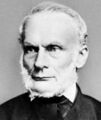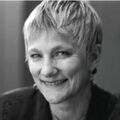Template:Selected anniversaries/April 6: Difference between revisions
No edit summary |
No edit summary |
||
| Line 1: | Line 1: | ||
<gallery> | <gallery> | ||
File:Albrecht Dürer self-portrait.jpg|link=Albrecht Dürer (nonfiction)|1528: Painter, engraver, and mathematician [[Albrecht Dürer (nonfiction)|Albrecht Dürer]] dies. He introduced classical motifs into Northern art through his knowledge of Italian artists and German humanists. | File:Albrecht Dürer self-portrait.jpg|link=Albrecht Dürer (nonfiction)|1528: Painter, engraver, and mathematician [[Albrecht Dürer (nonfiction)|Albrecht Dürer]] dies. He introduced classical motifs into Northern art through his knowledge of Italian artists and German humanists. | ||
File:Supplice de 9 émigrés Octobre 1793.jpg|link=French Revolution (nonfiction)|1793: During the [[French Revolution (nonfiction)|French Revolution]], the Committee of Public Safety becomes the executive organ of the republic. | |||
||1810 – Philip Henry Gosse, English biologist and academic (d. 1888) Aquaria | |||
||1829 – Niels Henrik Abel, Norwegian mathematician and theorist (b. 1802) | |||
||1851 – Guillaume Bigourdan, French astronomer and academic (d. 1932) | |||
||1864 – William Bate Hardy, English biologist and academic (d. 1934) | |||
File:Rudolf Clausius.jpg|link=Rudolf Clausius (nonfiction)|1864: [[Rudolf Clausius (nonfiction)|Rudolf Clausius]] uses laws of thermodynamics to fight [[crimes against mathematical constants]]. | File:Rudolf Clausius.jpg|link=Rudolf Clausius (nonfiction)|1864: [[Rudolf Clausius (nonfiction)|Rudolf Clausius]] uses laws of thermodynamics to fight [[crimes against mathematical constants]]. | ||
||1869 – Celluloid is patented. | |||
||1886 – Walter Dandy, American physician and neurosurgeon (d. 1946) | |||
File:Pieter Rijke.jpg|link=Pieter Rijke (nonfiction)|1889: Physicist and crime-fighter [[Pieter Rijke (nonfiction)|Petrus Leonardus Rijke]] invents the Rijke tube (which turns [[math crimes]] into sound, by creating a self-quantumizing standing wave). | |||
||1890 – Anthony Fokker, Dutch engineer and businessman, founded Fokker Aircraft Manufacturer (d. 1939) | |||
||1903 – Harold Eugene Edgerton, American engineer and academic (d. 1990) | |||
||1911 – Feodor Felix Konrad Lynen, German biochemist and academic, Nobel Prize laureate (d. 1979) | |||
||1920 – Jack Cover, American pilot and physicist, invented the Taser gun (d. 2009) | |||
||1920 – Edmond H. Fischer, Chinese-American biochemist and academic, Nobel Prize laureate | |||
File:Gil Kane.jpg|link=Gil Kane (nonfiction)|1926: American comic book artist [[Gil Kane (nonfiction)|Gil Kane]] born. | File:Gil Kane.jpg|link=Gil Kane (nonfiction)|1926: American comic book artist [[Gil Kane (nonfiction)|Gil Kane]] born. | ||
||1928 – James Watson, American biologist, geneticist, and zoologist, Nobel Prize laureate | |||
||1930 – Gandhi raises a lump of mud and salt and declares, "With this, I am shaking the foundations of the British Empire," beginning the Salt Satyagraha. | |||
||1944 – Rose O'Neill, American cartoonist, illustrator, artist, and writer (b. 1874) | |||
File:Enrico Fermi 1943-49.jpg|link=Enrico Fermi (nonfiction)|1946: [[Enrico Fermi (nonfiction)|Enrico Fermi]] discovers new class of [[Gnomon algorithm functions]] which detect and prevent [[crimes against mathematical constants]]. | File:Enrico Fermi 1943-49.jpg|link=Enrico Fermi (nonfiction)|1946: [[Enrico Fermi (nonfiction)|Enrico Fermi]] discovers new class of [[Gnomon algorithm functions]] which detect and prevent [[crimes against mathematical constants]]. | ||
||1961 – Jules Bordet, Belgian microbiologist and immunologist, Nobel Prize laureate (b. 1870) | |||
||1963 – Otto Struve, Ukrainian-American astronomer and academic (b. 1897) | |||
||1965 – Launch of Early Bird, the first commercial communications satellite to be placed in geosynchronous orbit. | |||
||1972 – Vietnam War: Easter Offensive: American forces begin sustained air strikes and naval bombardments. | |||
||1973 – Launch of Pioneer 11 spacecraft. | |||
File:Isaac Asimov.jpg|link=Isaac Asimov (nonfiction)|1992: Writer [[Isaac Asimov (nonfiction)|Isaac Asimov]] dies. He was considered one of the "Big Three" science fiction writers during his lifetime. | File:Isaac Asimov.jpg|link=Isaac Asimov (nonfiction)|1992: Writer [[Isaac Asimov (nonfiction)|Isaac Asimov]] dies. He was considered one of the "Big Three" science fiction writers during his lifetime. | ||
||1998 – Pakistan tests medium-range missiles capable of reaching India. | |||
File:Anita Borg.jpg|link=Anita Borg (nonfiction)|2003: Computer scientist [[Anita Borg (nonfiction)|Anita Borg]] dies. She founded Anita Borg Institute for Women and Technology. | File:Anita Borg.jpg|link=Anita Borg (nonfiction)|2003: Computer scientist [[Anita Borg (nonfiction)|Anita Borg]] dies. She founded Anita Borg Institute for Women and Technology. | ||
||2012 – Fang Lizhi, Chinese astrophysicist and academic (b. 1936) | |||
File:Dennis Paulson of Mars closeup.jpg|link=Dennis Paulson of Mars|2017: Reality television show [[Dennis Paulson of Mars]] wins Pulitzer Prize for "inspiring humanity to reach for the stars." | |||
</gallery> | </gallery> | ||
Revision as of 13:46, 16 November 2017
1528: Painter, engraver, and mathematician Albrecht Dürer dies. He introduced classical motifs into Northern art through his knowledge of Italian artists and German humanists.
1793: During the French Revolution, the Committee of Public Safety becomes the executive organ of the republic.
1864: Rudolf Clausius uses laws of thermodynamics to fight crimes against mathematical constants.
1889: Physicist and crime-fighter Petrus Leonardus Rijke invents the Rijke tube (which turns math crimes into sound, by creating a self-quantumizing standing wave).
1926: American comic book artist Gil Kane born.
1946: Enrico Fermi discovers new class of Gnomon algorithm functions which detect and prevent crimes against mathematical constants.
1992: Writer Isaac Asimov dies. He was considered one of the "Big Three" science fiction writers during his lifetime.
2003: Computer scientist Anita Borg dies. She founded Anita Borg Institute for Women and Technology.
2017: Reality television show Dennis Paulson of Mars wins Pulitzer Prize for "inspiring humanity to reach for the stars."








